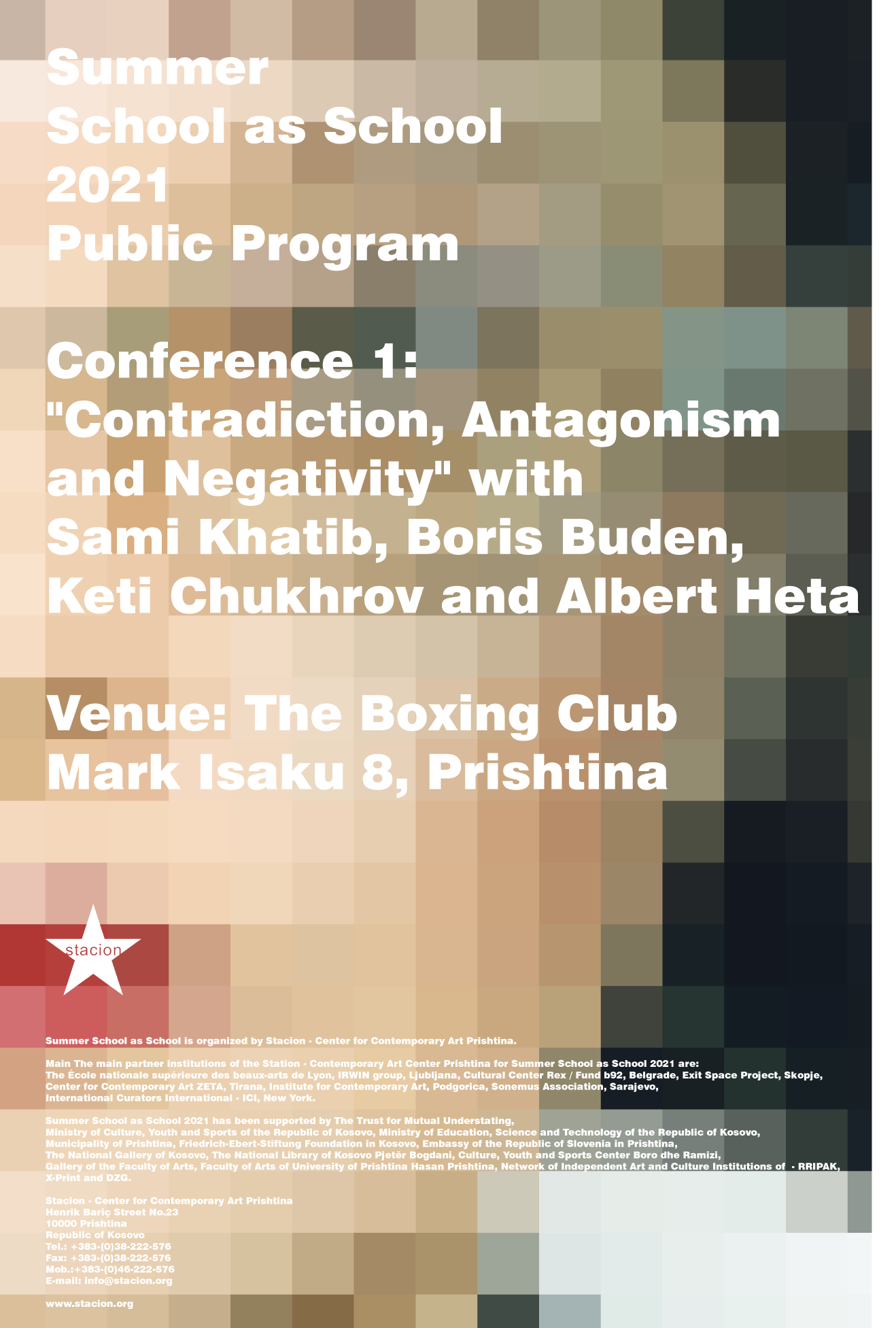
Summer School as School 2021 Conference 1: "Contradiction, Antagonism and Negativity"
with Sami Khatib, Boris Buden, Keti Chukhrov and Albert Heta
The conference "Contradiction, Antagonism and Negativity" is part of the public program Summer School as School 2021, organized on Saturday, August 7, 2021 at 19:00.
Sigmund Freud diagnosed an "Unbehagen in der Kultur," a discontent, uncanniness, and uneasiness in and with modern culture and civilization (1930). If, in the age of capitalism, the modern subject is not the ‘master in her own house' (Freud), affects of fear and aggression estrange social relations: cultural life becomes (re)produced negatively, in a denaturalized way.
Taking its cue from Freud and the ambiguities of cultural discontent, the conference invites a conversation within a broader conceptual framework, based on figures of negativity, antagonism and contradiction. In modern continental thought, the term negativity has been thematised in various ways, most prominently in the dialectical philosophy of G. W. F. Hegel and subsequently in the three critical discourses of Marx, Nietzsche and Freud. This “school of suspicion” – to recall Paul Ricoeur’s (1965) influential labelling of these three thinkers – detected constitutive gaps, inconsistencies and contradictions in the functioning of modern society.
With the ‘uneven and combined’ history of modernity, colonialism and industrial capitalism, collective experiences of class antagonism, psycho-social alienation, economic exploitation and separation, although destructive and destitutive on their own terms, became constitutive of social relations. In a world in which "all that is solid melts into air" (Marx/Engels 1848), communal life lacks habitual solidity, stability and predictability. In fact, negativity as a critical-philosophical concept, disruptive experience and actual force of destruction, has “productive” dimensions. Functioning almost like an “inverse vitalism” of death-driven aliveness, negativity puts (post)modern concepts of identity, stability, substance, essence, sovereignty, and structure to the test. Lacking a fixed definition, negativity is a fluid, fugitive, dialectical concept that undermines static oppositions and clear boundaries.
This conceptual vagueness proves productive when read as a symptom of the actually existing negativity of social relations and the dimension of the unconscious, the ungrounding ambiguity of language, subject constitution and ideological interpellation. If modernity "pours us all into a maelstrom of perpetual disintegration and renewal, of struggle and contradiction, of ambiguity and anguish" (Marshall Berman 1988), negativity translates in the specific modern mode of experience, that is, negative experiences and the negativity of experience, the destruction of experiential meaning.
The conference invites contributions that discuss the nexus of (post)modern society and negativity, antagonism and contradiction, particularly from the fields of critical theory, decolonial political theory, psychoanalysis, aesthetics, queer theory and feminism. Taking into account the short history of 20th century modernism, the conference also poses the question whether and how we can (re)think negativity beyond capitalist postmodernity. In an allegedly “post-historical” age, has negativity become too negative to “work”?